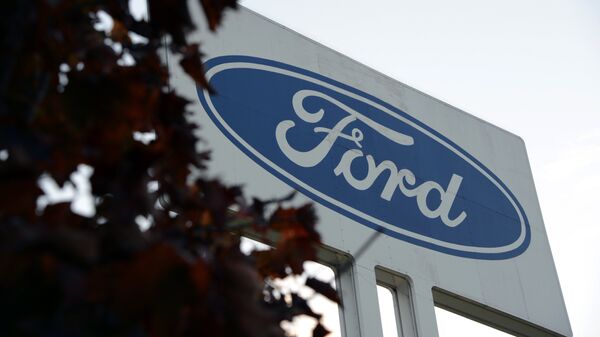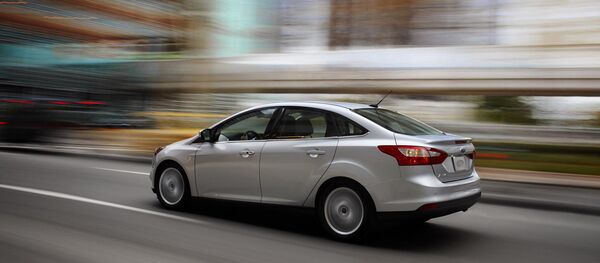Ford has closed its factory in Flat Rock, MI, just south of the once-thriving Detroit, due to the overproduction in the weakening market. The facility employs 3,702 workers and makes Mustangs and Lincoln Continentals, and is set to reopen on October 17, according to the company’s statement. The workers will be paid for the entire period of idling according to the union rules, yet, the facility’s return to normal operation is questionable. Meanwhile, this lockout might be a sign of a looming systemic crisis.
US car sales are expected to post an industry-wide contraction in September, having declined an estimated 1pc year-on-year, according to JD Power projections. Corporate data support the layout, with General Motors having reported a 0.6pc contraction in sales to 249,795 vehicles in September, Ford Motor’s sales dropped 8.1pc to 203,444.
Meanwhile, Toyota Motor Corp said its US sales rose 1.5pc to 197,260 vehicles, with a 13pc gain in lorry sales and a 9.2pc decline in car sales. Another Japanese enterprise, Nissan Motor, has reported a gain in overall sales to 4.9pc to 127,797 vehicles, with a 19pc increase in lorry sales, and a 5.8pc drop in car sales.
These developments have exacerbated the downside pressure on the US manufacturing, with strong dollar and free trade deals rendering American manufactured goods uncompetitive even in the domestic US market.
According to the Federal Reserve, in August overall US credit ballooned by another $25.9 bln, far surpassing earlier expectations of $16.5 bln.
"We’re in a big, fat, ugly bubble," GOP presidential nominee Donald Trump said during his first presidential debate two weeks ago. With debt increasing, he emphasized, the "only thing that looks good is the stock market."
Non-revolving credit surged in August by $20 bln, compared to revolving credit (credit cards) gains of $2.9 bln. On a non-seasonally-adjusted basis, the Fed report said, August consumer credit skyrocketed by $46.8 bln. The total amount of auto loans has surpassed the $1 trln mark, and is now at $1.05 trln.
Meanwhile, Ford has sold only 87,258 Mustangs in 2016 thus far, down 9.3pc year-on-year, while GM’s Camaro sold 54,535 vehicles, a decline of 11pc, according to Autodata Corp. Showroom sales are sliding across the US as consumers seem to be increasingly overleveraged. The strong dollar, trade policies and Fed interest rates regime, meanwhile, prevent US automakers from expanding sales in overseas markets – US exports are too expensive for a global consumers to afford at a significant production quality mismatch.
"With the rate of growth slowing, leading indicators are pointing to challenges ahead," Deirdre Borrego, of J.D. Power’s auto data and analytics said.
While the current trends in US manufacturing are seen as prevalent, an ever-increasing amount of jobs are put in jeopardy, whilst regulation and union rules are weighing on the employers’ financial performance. In this zero-sum game structural reform seems necessary.



